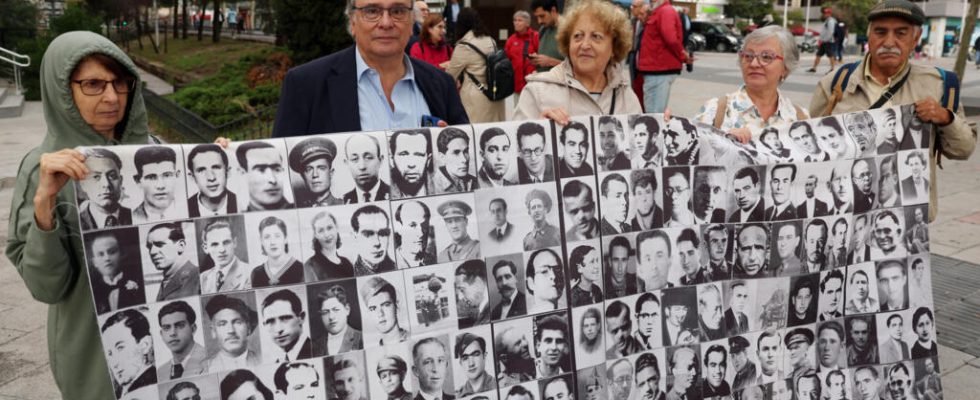For the very first time, a Spanish court has accepted the complaint of a victim of Francoism. His hearing took place this Friday, September 15. It could set a precedent and allow a hundred other victims to also benefit from a trial.
3 mins
“ This is the first crack in the wall of impunity. » This is the expression used by Julio Pacheco Yepes, now 67 years old, at the end of his historic hearing at the Madrid court, reports our correspondent in Madrid, Francois Musseau. At the age of 17, during the summer of 1975 at the very end of the Franco dictatorship, this man was tortured for several days by police officers in the building of the General Directorate of Security, in Puerta del Plaza. Ground in Madrid. He was then sent to prison, accused of terrorism.
Nearly 50 years after the death of General Franco, this Spaniard became the first victim of torture under the dictatorship to testify before a judge in Spain, hoping to open the door to hearings of other victims. “ Seeing a judge listen to you for the first time means that other complaints could be admitted and that we could finally get justice “, declared this retiree with emotion after his hearing, to the cries of his supporters “ reparation, truth, justice “.
The 1977 amnesty law, an obstacle to any procedure against the crimes of Francoism
Pacheco Yepes was part of a left-wing, anti-Franco university union. He had been arrested because of this affiliation considered to be “ harmful » by the regime in place. Forty-eight years after the events, this former printer filed a complaint in February against his four torturers, including the notorious ex-commissioner José Manuel Villarejo, famous in Spain for having recorded numerous political figures or economic circles without their knowledge.
Until now, many victims of Franco’s repression tried to prosecute judicial proceedings against their executioners and the dictatorship, but no judge had accepted them, brandishing the amnesty law of October 1977. This pillar text of the transition towards democracy, after the death of Franco on November 20, 1975, prevents prosecution any political offense committed during the dictatorship by opponents, but also by “ civil servants and public order agents “.
“ Crimes against humanity » invoked
However, in the case of Pacheco, Madrid judge Ana Maria Iguacel admitted this complaint in May due to “ the possible existence ” of “ crimes against humanity and torture ” in this file.
This judge, taking the opposite view of so many other magistrates before her, considered that consequently, the crimes denounced are not time-barred, and that they can and must be judged. It will now have to summon the accused and decide at the end of its investigation whether to refer them to court or to dismiss them without further action.
A member of the new special prosecutor’s office for human rights and democratic memory was present during the hearing, which was held this Friday behind closed doors. An encouraging sign for the progress of the legal procedure, according to Julio Pacheco and his lawyer. This prosecution was put in place by a recent flagship law of the left-wing government, intended to rehabilitate the victims of Francoism.
(And with AFP)
